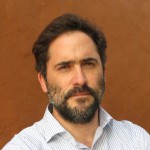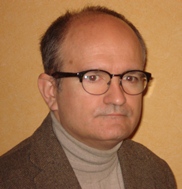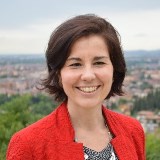INTERDISCIPLINARY RESEARCH WEEK 2018
“FROM THE SELF to the person”
(AUGUST 6-9 – UNIVERSIDAD AUSTRAL)
KEY-NOTE TALK: “How did the personalization of man’s biological fabric take place?”

Juan Arana has studied philosophy and physics at the Universities of Navarra and Complutense of Madrid. He has a PhD in Philosophy from the University of Seville. He has been Professor of Philosophy at the University of Seville since 1986. He was a Humboldt scholar and visiting professor at several German universities, in Paris, San Juan de Puerto Rico, Mayagüez, Mexico City, Bogotá and Santiago de Chile. He is a member of the Leibniz Society of Spain and of the Contemporary Humanities School of Madrid. He specializes in the relationships between philosophy, science, religion and literature. He has founded and directed three magazines: Bibliographic Studies of Philosophy, Thémata, and Nature and Freedom.
KEY-NOTE TALK: “The role of positive and negative empathy in prosocial behavior”
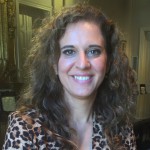
Belén Mesurado has a degree in Psychology (Universidad del Norte Santo Tomás de Aquino), and a PhD in Psychology (Universidad Nacional de San Luis). She is a Research Associate of the National Council of Scientific and Technical Research (CONICET) based at the Interdisciplinary Center for Research in Mathematics and Experimental Psychology (CIIPME). She works on issues related to Positive Psychology, focusing on the study of family and psycho-emotional factors in promoting prosocial behaviors. She developed studies on optimal experience (flow) linked to the promotion of pro-social activities and academic commitment in childhood and adolescence.
COURSE: “Function and structure of neural networks”
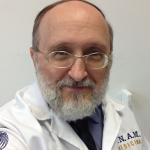
Alexandre de Pomposo has a PhD in Physical Sciences from the Free University of Brussels, Belgium, with a thesis directed by Professor Ilya Prigogine (Nobel Prize in Chemistry 1977). Bachelor of Philosophy at the Catholic University of Leuven, Belgium. Surgeon by the National Autonomous University of Mexico. Member of the Royal Academy of Sciences of Belgium as a free researcher. Member of the French Society of Philosophy, of the Xavier Zubiri Foundation of Madrid, of the Ethics and Research Committee for Human Studies of Médica Sur in Mexico City. He participates in the Human Connectome Project as an external collaborator. Research Coordinator and Professor of the Clinical Teaching Secretariat of the Faculty of Medicine of the UNAM. Professor and Researcher Emeritus at the Real World Multiversity Edgar Morin of Mexico City.
workshop
The aim of the workshop is to promote an interdisciplinary high-level research in six working sessions. The question that guides each session will be studied by a couple of scholars from different disciplines. The first speaker will present the status quaestionis, then propose a possible answer from his discipline, opening the game to the presentation of a complementary vision from the perspective of the other speaker. The second speaker will assess the contributions from the first intervention, propose a possible answer from his discipline and open the session to questions and comments from all participants.
Session 1: What is the nature of the narrative “Me”?
Juan Esteban de Erquiaga is a psychiatrist by the University of Buenos Aires. He obtained a Fellowship in Liaison Psychiatry at Universidad Austral (2013) and is currently part of the Psychiatry Service Staff at the Austral Hospital.
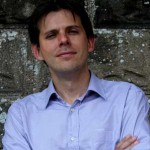
Luis Echarte is Professor and Doctor of the Medical Education and Bioethics Unit of the Faculty of Medicine of the University of Navarra. Bachelor of medicine, he completed his doctoral studies in the area of Neurosciences, which he completed with the defense of his doctoral thesis on the concept of intentionality and conscience in medical literature. He is also coordinator of the “Hábitos y Neuroética” subproject, part of the Biology and Subjectivity research project (Instituto Cultura y Sociedad). His current line of research focuses on the problem of identity in the improvement of human nature.
Session 2: What does the notion of ‘person’ add to those of ‘mind’ and ‘self’?
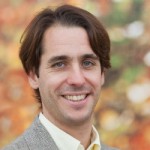
Gonzalo Arrondo Ostíz is a researcher of the Mind-Brain group at the Institute for Culture and Society (University of Navarra, Spain). He has experience in neuropsychology, functional neuroimaging, evidence-based biopsychology and medicine, and more generally in empirical psychology and cognitive neuroscience. His current interests pivot around the study of cognitive decision-making processes, evidence-based psychology and psychiatry, and, on a more theoretical level, epistemology of psychiatry. He is in charge of some of the projects of the Mind-Brain group and also lends support to the design and execution of the empirical studies of the group.
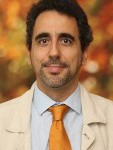
José Ignacio Murillo is Professor in the Philosophy Department of the University of Navarra. His research is framed in the field of anthropology and is animated by the interest in integrating the diverse scientific perspectives that study the human being. This concern has also impelled him to dialogue with the natural and social sciences, and also with theology. In recent years he has devoted special attention to the relationship between biology and anthropology, and has studied the subject of life and living beings in various authors. He currently directs the interdisciplinary project “Biology and Subjectivity in Contemporary Philosophy and Neuroscience” at the Institute of Culture and Society (ICS) of the University of Navarra.
Session 3: Can the second-person perspective play any heuristic role in neuroscience?
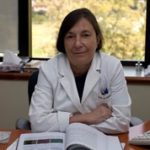 Angela Suburo has a PhD in Medicine (Universidad de Buenos Aires), and she specializes in neurosciences. She is a Senior Researcher at the National Council of Scientific and Technological Research (CONICET) and she is also Professor of Cellular and Molecular Medicine at Universidad Austral. She is member of several associations: Association for Research in Vision and Ophthalmology (Chairperson of the Retinal Cell Biology section), Society for Neuroscience, International Society for Eye Research, Asociación de Investigación en Visión y Oftalmología, Sociedad Argentina de Neuroquímica and Sociedad Argentina de Investigación Clínica. She leads a group of young researchers dedicated to the study of neurodegenerative diseases in the retina and in the brain. She has written numerous articles. In 2011 her work “Mecanismos de protección de los fotorreceptores: papel de los glucocorticoides” received the Nocetti and Tiscornia Prize, awarded by the National Academy of Medicine (Buenos Aires).
Angela Suburo has a PhD in Medicine (Universidad de Buenos Aires), and she specializes in neurosciences. She is a Senior Researcher at the National Council of Scientific and Technological Research (CONICET) and she is also Professor of Cellular and Molecular Medicine at Universidad Austral. She is member of several associations: Association for Research in Vision and Ophthalmology (Chairperson of the Retinal Cell Biology section), Society for Neuroscience, International Society for Eye Research, Asociación de Investigación en Visión y Oftalmología, Sociedad Argentina de Neuroquímica and Sociedad Argentina de Investigación Clínica. She leads a group of young researchers dedicated to the study of neurodegenerative diseases in the retina and in the brain. She has written numerous articles. In 2011 her work “Mecanismos de protección de los fotorreceptores: papel de los glucocorticoides” received the Nocetti and Tiscornia Prize, awarded by the National Academy of Medicine (Buenos Aires).
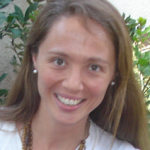
Ivana Anton Mlinar has a PhD in Philosophy from the National University of Cuyo – UNCuyo (as a grantee from DAAD in the Husserl-Archiv of the Cologne University, Germany). She is a Researcher at the National Council of Scientific and Technological Research (CONICET) and she is Professor of Philosophy of Language at the UNCuyo. She is director of the journals Philosophiaand Revista de Fenomenología y Ciencia Cognitiva (with Jethro Masís). She directs the research project “Fenomenología y neurociencias: estudios en torno al self” (UNCuyo). [Fenomenology and Neuroscience: Studies about the Self].
Session 4: Are brain studies and the concept of mind sufficient to account for the openness of man to God?

Alexandre de Pomposo has a PhD in Physical Sciences from the Free University of Brussels, Belgium, with a thesis directed by Professor Ilya Prigogine (Nobel Prize in Chemistry 1977). Bachelor of Philosophy at the Catholic University of Leuven, Belgium. Surgeon by the National Autonomous University of Mexico. Member of the Royal Academy of Sciences of Belgium as a free researcher. Member of the French Society of Philosophy, of the Xavier Zubiri Foundation of Madrid, of the Ethics and Research Committee for Human Studies of Médica Sur in Mexico City. He participates in the Human Connectome Project as an external collaborator. Research Coordinator and Professor of the Clinical Teaching Secretariat of the Faculty of Medicine of the UNAM. Professor and Researcher Emeritus at the Real World Multiversity Edgar Morin of Mexico City.
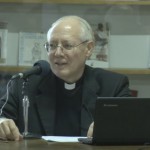 Juan José Sanguineti has a PhD in Philosophy (Universidad de Navarra, Spain). He is Professor of Philosophy of Knowledge at the School of Philosophy at the Pontifical University of the Holy Cross (Rome). He has published fifteen books and nearly a hundred scientific articles on theory of knowledge, philosophy of science, philosophy of nature, philosophy of mind and the neurosciences. He was Director of the Scientific Committee of the Project STOQ III (Rome, 2007-2010, University of the Holy Cross, area of Neurosciences). He regularly delivers graduate courses and seminars at different universities in Latin America. He is ordinary member of the Pontifical Roman Academy of Saint Thomas and of the Sociedad Tomista Argentina. He is a member of the scientific committee of the journal Acta Philosophica (University of the Holy Cross).
Juan José Sanguineti has a PhD in Philosophy (Universidad de Navarra, Spain). He is Professor of Philosophy of Knowledge at the School of Philosophy at the Pontifical University of the Holy Cross (Rome). He has published fifteen books and nearly a hundred scientific articles on theory of knowledge, philosophy of science, philosophy of nature, philosophy of mind and the neurosciences. He was Director of the Scientific Committee of the Project STOQ III (Rome, 2007-2010, University of the Holy Cross, area of Neurosciences). He regularly delivers graduate courses and seminars at different universities in Latin America. He is ordinary member of the Pontifical Roman Academy of Saint Thomas and of the Sociedad Tomista Argentina. He is a member of the scientific committee of the journal Acta Philosophica (University of the Holy Cross).
Session 5: Can Artificial intelligence provide machines with a ‘mind’?
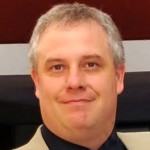
Leonardo Rufiner holds a degree in bioengineering from the National University of Entre Rios, a master degree in Biomedical Engineering from the Autonomous Metropolitan University (Mexico) and a PhD in Engineering from the University of Buenos Aires. He is Researcher at the CONICET and Professor at the National University of Entre Ríos and the Universidad Nacional del Litoral. He directs the Laboratory of Cybernetics (UNER) and is part of the Research Center in Signals, Systems and Computational Intelligence (UNL-CONICET).
Francisco José Soler Gil has studied Physics and Philosophy at the University of Granada, and holds a PhD in Philosophy from the University of Bremen (Germany). He has worked in the Philosophy of Physics research group of this university, as well as in the particle astrophysics research group of the Technical University of Dortmund (Germany). He is currently a researcher at the Faculty of Philosophy of the University of Seville. He has specialized in philosophy of nature and physics. He has published, among others, the following books: “Aristotle in the Quantum World” (2003), “The Divine and the Human in the Universe of Stephen Hawking” (2008), “Discovery or Construction? Astroparticle Physics and the Search for Physical Reality” (2012), “Materialist Mythology of Science” (2013), “Philosophie der Kosmologie” (2014), and “The Universe to Debate” (2016).
Session 6: Transhumanism – what value does the biological limit have in the constitution of the life of a person?
Marta Bertolaso is Associate Professor of Philosophy of Science at the Faculty of Engineering and at the Institute of Philosophy of the Scientific and Technological Practice of the University Bio-Medical Campus of Rome. Her research projects deal with new epistemological and philosophical challenges in the fields of biological and systemic development (with special emphasis on cancer), scientific progress, silica medicine, modeling and validation processes. She has been a professor of philosophy of science and bioethics at different universities in Italy, Munich and St. Louis (USA). Among her latest publications are Philosophy of Cancer – A Dynamic and Relational View. Springer Series in “History, Philosophy & Theory of Life Sciences”, 2016, and The Future of Scientific Practice: ‘Bio-Techno-Logos’, Pickering & Chatto Publishers, London, 2015. She is currently also working for a new Series of Springer, whose title is “Human Perspectives in Bio-Medicine and Technology”.
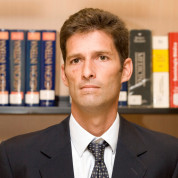
Mariano Asla has a degree in Philosophy (Universidad Católica Argentina) and a PhD in Philosophy (Universidad de Navarra). He wrote the book “La gramática moral universal: ¿Una aproximación cognitivista a la ley moral?”[Universal Moral Grammar. A cognitive approach to natural law?] published by EUNSA. He is an Associate Professor of Philosophical Anthropology and Ethics at the School of Biomedical Sciences at the Universidad Austral. He is author of the book “La gramática moral univeral” (Universal Moral Grammar. A cognitive approach to natural law?), published by EUNSA. He is also a member of the Board of Ethics in Medicine (CAEEM) of the National Academy of Medicine. His research focus is philosophical naturalism, especially in areas such as cognitive science of morality and religion, and philosophy of pain, as well as the human universals and innatism.

